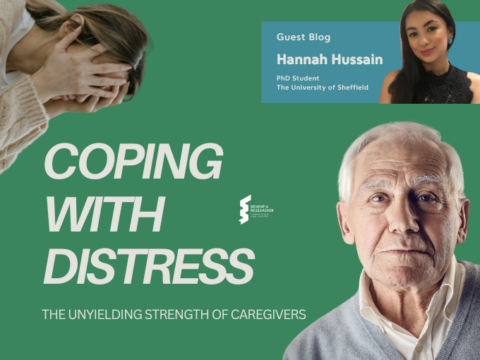 Hello, my name is Paul Brownbill, from the University of South Wales, Faculty of Life Science and Education. I am a Qualified Social Worker with a Master’s Degree in Research Methods. The title of my Master’s thesis was, ‘Quality of Life and the Role of Communal Space in Sheltered Housing: A Qualitative Study’.
Hello, my name is Paul Brownbill, from the University of South Wales, Faculty of Life Science and Education. I am a Qualified Social Worker with a Master’s Degree in Research Methods. The title of my Master’s thesis was, ‘Quality of Life and the Role of Communal Space in Sheltered Housing: A Qualitative Study’.
Until October 2014 I worked on a 2-year qualitative research project between a Welsh Health-board and a University that focused on the evaluation of the healthcare research governance process. My current PhD research project is titled: ‘Caring for people who have dementia in Community Hospitals: A longitudinal ethnographic study of healthcare workers’ everyday decision-making’.
The focus of my PhD is the everyday decision-making processes of those caring for people living with dementia. The study examines decision-making in the context of community hospitals. Community hospitals were chosen as there is limited previous research considering the unique context of and contribution that community hospitals have in health and social care services. Previous hospital studies have focused predominantly on the acute service. Therefore, It was important to focus on this sector as, according to the Community Hospital Association, there are approximately 500 community hospitals in the United Kingdom, including some 44 in Wales.
Twenty-two people with different perspectives, knowledge, and experience of making decisions with, for and about people living with dementia, and with knowledge of community hospitals participated in a total of five group interviews. Two groups included family, friends, carers and members of the voluntary sector with experience of supporting people living with dementia. Two groups included health and social care staff working in community hospitals with people living with dementia. The final group included health and social care staff who did not work in community hospitals but had experience of working with people with dementia and the services provided by community hospitals. Group interview participants discussed their experience and perspective of decision-making. In addition to the group interviews, ten weeks of non-participant observation were undertaken at three community hospitals. The observations gathered a first-hand understanding of the process of decision making with, about and for people living with dementia, in the context of community hospitals.
Ethnomethodology was chosen as a foundation for data analysis as both the founder Garfinkel, (1967) and subsequent authors using ethnomethodology have shown how context is important to understanding social interactions. Furthermore, ethnomethodology demonstrates how social actions, including, in this instance, the process of decision-making for, with, and about people living with dementia, must display order recognisable to others to be understood. It is the achievement and display of such recognisable orders that produce mutual understanding and social action. Ethnomethodology’s unique contribution to knowledge, and therefore part of the unique contribution to knowledge of my study as to how this mutual understanding is achieved. Therefore, we will further understanding how the properties that give order to situated action throughout the care of people with dementia in community hospitals, are made public and mutually recognisable by study participants from the contingencies present. It is my role after the analysis to interpret how the contingencies are understood as recognisable objects through participants shared methods that show order in the moment.
It is the aim that at the end of the study the analysis will show how participants caring for people living with dementia produce themselves in order to aid mutual understanding, whilst in the process of making decisions with, for, and about people living with dementia in the context of community hospitals.
I am grateful to all participants who gave up their time to take part in interviews, and community hospital staff for allowing me to spend 10 weeks observing their practice. I have collected all participant data and am now completing the findings, conclusion and discussion ready for presentation and publication. I will be finished by Spring 2018.

 Print This Post
Print This Post